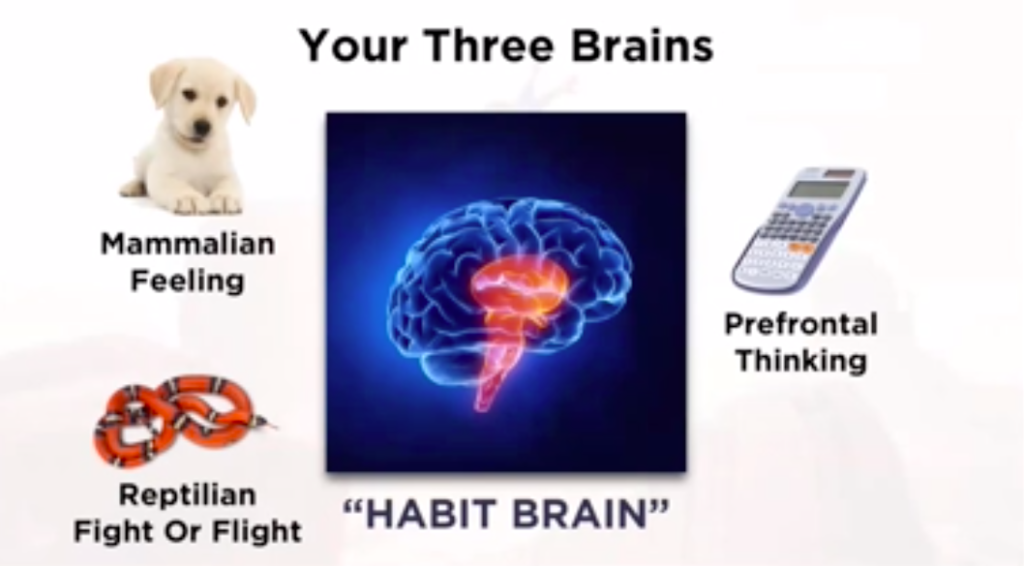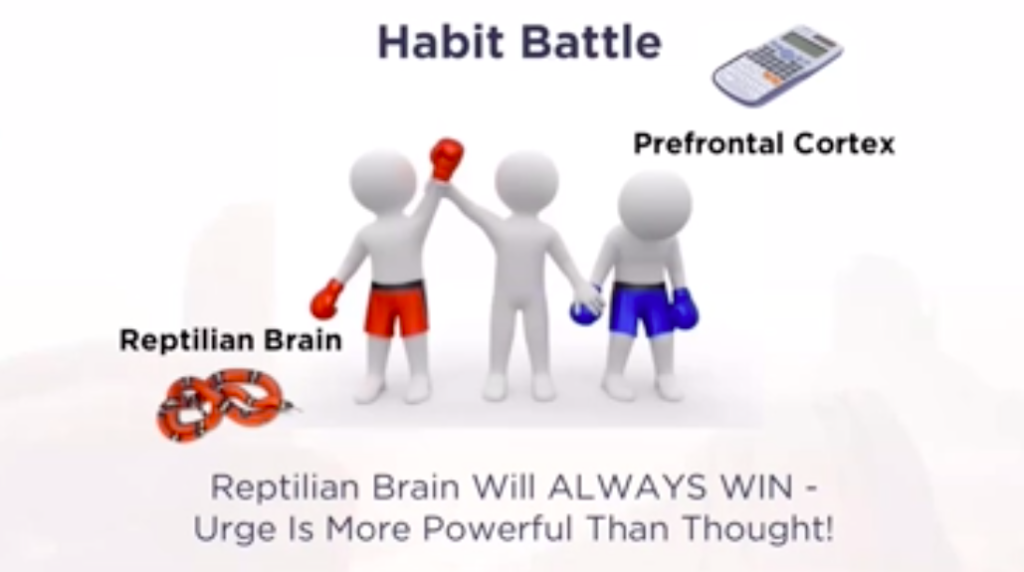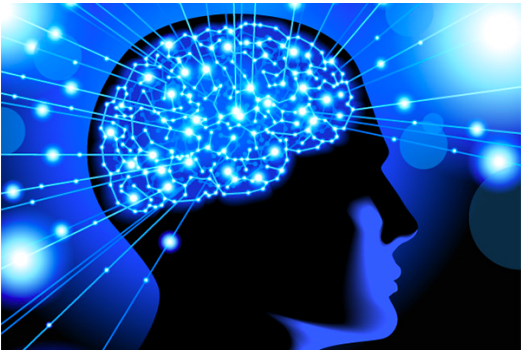“Nothing so needs reforming as people’s habits.”
Mark Twain
Have you ever wanted to start some new routine and not able to stick to it or wanted to stop bad habits but not able to stop?
Or do you set goals but really struggle to reach goals?
You aren’t alone. Research has shown that people wait for months to start something during the new year and yet around one-quarter of people give up their new year resolutions after just one week, while fewer than one in ten will maintain their goal to the end of the year.
Why does this happen?
Most people convince themselves that they didn’t put too much effort or lacked the necessary will-power or some other excuses.
But real reason what most miss out is, as humans, we are very poor at change. Our brains are hardwired not to accept change in our behaviors! Because the changes we want to imbibe at behavior level is perceived as a threat to the brain and it makes all efforts to resist change.
To bring a real change at behavior level, what is required is not just motivation, desire or will power but and the ability to stop negative habits and form new positive habits.
That is because the chains of habits we already have formed are too strong to be broken by desire or will-power.
“Motivation is what gets you started. Habit is what keeps you going.”
Jim Rohn
But now there is enough brain research done to understand the science of habits. The neuroscience and sub-conscious mind programming are the new frontiers of personal development.
In this blog, I want to give you an understanding of what neuroscience of habits and how it can help to over negative habits and develop new power habits.
What is habit & 3 R’s of habit
As per Wikipedia, The American Journal of Psychology (1903) defines a “habit, from the standpoint of psychology, [as] a more or less fixed way of thinking, willing, or feeling acquired through previous repetition of a mental experience.”[
Habitual behavior often goes unnoticed in persons exhibiting it, because a person does not need to engage in self-analysis when undertaking routine tasks. Habits are sometimes compulsory
Old habits are hard to break and new habits are hard to form because the behavioral patterns which humans repeat become imprinted in neural pathways, but it is possible to form new habits through repetition.
Wikipedia
Whatever we do is 95% unconscious. That means the automatic routines have been programmed in us which continuously happens even if one is not being aware.
This level of auto routines is needed as one of the primary jobs of the brain is to conserve energy and the brain tries to make routines so that energy consumption is less and helps us in survival.
Take the case of driving, initially at the time of learning we had to be conscious of everything right from acceleration, brake, clutch, traffic signs, etc. We have to be extra attentive and covering even a few km takes a toll on us as we spend a lot of energy.
But as we practice, our brain programs itself all the actions and 95% of actions become automatic (unconscious) and we can drive miles without spending a lot of energy.
3 R’s of habit formation
Whether it is driving or any other habits, the formation of habit is nothing but a simple, 3 step cycle. The cycle is called the “3 R’s of Habit Change”.
- Reminder (the trigger that initiates the behavior)
- Routine (the actual behavior you perform)
- Reward (the benefit from doing the behavior)
So for the driving example, the reward is I want to go from point A to point B, the routine is to get into the car and start the engine and reminder is series of small acts that ensure we drive smoothly.
This seems simple for driving, but when we want to develop new habits such as eating healthy food, regular exercise, start journaling, or break some existing habits such as frequent social media checks, stop eating junk foods, avoid multi-tasking, we find it difficult.
Why is that? Though outside, habit formation looks like a simple act of repetition, there is a lot goes to program new routines or break routines.
You are not your habits – Neuroplasticity
One of the primary reasons why people struggle to stop bad habits, they identify habits as their core being.
Have you told yourself often or seen others telling that I am a foodie and can’t give up on eating, I am a late riser, so I can’t hit the gym in the morning, I am a procrastinator and can’t finish things on time, I am an introvert and I can’t speak to strangers!
If you are saying to yourself or have seen someone telling this kind, what is that one is implying?
It is relating the behavior which is nothing but unconscious routines or habits to one’s own identity. This is one of the biggest hurdles to stop or start a new routine(habit).
Human beings are creatures of habits! But our core identity is not our habits.
The latest scientific discovery shows that any habits can be stopped and also start any new habits at any age.
To make our actions automatic, for every habit/routines, neural pathways are formed in our brains.
Neural pathways are something similar to walking trails formed in trekking a mountain. These pathways help you easy to reach the peak or descend to the base

Now the scientific evidence says, we can stop using old neural pathways and have the ability to form new neural pathways at any age! This is called Neuro Plasticity.
With sufficient practice and repetition, even behaviors that exist from childhood can be altered.
But for this happen, one needs to realize that we are not our habits. Our behavior is a reflection of the habits we formed and the beliefs we hold.
Beliefs are just a memory we have formed and can be changed at any time with practice and the right techniques.
But to successfully do that, understanding the neuroscience of how the brain works and how to program our subconscious mind to create new memory is key.
Let’s dive in to understand the same.
The evolution of the human brain
The recent scientific discoveries reveal that our brain has different parts that handle different aspects of our existence. Our brain has evolved over millennia. Scientists have categorized the brain evolution at 3 levels,
- Survival | Reptilian
- Emotional | Mammalian
- Thinking & Logical | Neo-cortex

As we can see from the above picture, the 3 parts of the brain exist to perform 3 distinct roles.
The reptilian brain responsible is to keep us alive. Its primary purpose is to serve our existential needs such as food, reproduction!
This is part of the brain working in the background to conserve energy and keep us alive.
The reptilian brain has absolute control over our actions and responds to any threats or urges to be satisfied.
The 2nd level which is the mammalian part of the brain is responsible for the emotional aspects. This part of the brain is what helps us to be part of the community, experience different emotions.
The emotions can be of pain, pleasure, love, affection, etc. The mammalian brain has access to memory and most of the beliefs we form out of our feelings are stored in the memory.
Then there is a 3rd large part of the brain called the frontal lobe and is responsible for the logical, thinking part. This exists only in humans and this is the ultimate achievement of brain evolution.
This is part of the brain which helps us to think, logic and any of the conscious acts we do like the way I am writing, reading, thinking about this is all happening at your frontal lobe.
You may wonder how these are related to habits?
Relation b/w 3 parts of the brain and beliefs, behaviors
Right from the time, we wake up till we go to bed at night, 95% of the actions we do every day are unconscious routines.
Now how does this happen? What roles do the 3 different parts of the brain do to make most of our actions unconscious?
This requires a very subtle process of understanding our beliefs, and behaviors that define our actions.
Any act we perform which is automatic is first reminded by our reptilian brain. The reptilian part of the brain has direct access to our memory where most of the beliefs are stored. Many routines stored are nothing but the urge to do things or fear of not doing certain things.
For example, an auto routine of watching NEWS on the smartphone can be an urge to know what is the latest update or fear of being missed out of not knowing the latest update!
The reptilian brain acts on urge or fear, but how does the urge or fear gets formed?
It is the mammalian part of the brain that causes beliefs to be formed in the first place and keeps as stored memory. The mammalian part which is responsible for the emotions.
The emotions we attach to any act form our memory and stronger the emotion the memory gets imprinted strongly. The more emotions we experience, the neural pathways also get formed quickly!
Now the logical/neo-cortex part of the brain is where we think and also desire certain actions we want to perform. To make actions automatic, just thinking is not enough, there has to be an emotional side to it.
If you notice, there are many actions we perform every day without having used logic/neo-cortex brain. These are acts if someone why do you do, you may not have a logical or clear thinking answer. What this means is the beliefs about the actions are formed by the mammalian brain directly.
Today there are 10’s of companies, advertisers, news channels that are using this very brain science to get us hooked to their apps, food, products, news by attacking the emotional part of the brain directly.
If we aren’t conscious and allowing our emotional brain direct access, then it is as simple as someone else is remotely is controlling!
And as the beliefs are imprinted, our reptilian brain takes over and forms it a habit so it can act unconsciously.
Why it is difficult to form or break a habit?
Now as neural pathways get formed, the reptilian brain performs routines automatically. The reptilian brain treats every auto routine as needed for our very survival.
It just treats all the routines as an urge or compulsion to be fulfilled at certain reminders.
The reptilian brain has only a few responses to keep us survive. It responds with a fight or flight approach for threats and urge response to fulfill any compulsive behavior.
For the reptilian brain, every act is seen as a survival mechanism. It cannot differentiate b/w eating junk food at certain intervals vs. escaping from the tiger in the jungle!
Now a conscious thought or desire to stop a routine won’t work as, as the reptilian brain operates at an unconscious level. It doesn’t take any command from the logic/neo-cortex brain
There is a habit voice keeps that reminds to act. If ignored or postponed by our will-power/desire, the habit voice for a while obeys but comes back after a while and counters with reasons to ensure the act of habit is fulfilled.
The reptilian brain can easily trick the conscious mind also, that fulfilling the habit act is in the best interest!
The will-power or desire which is a conscious level act (neo-cortex brain) doesn’t help. In the habit battle, will-power or motivation doesn’t work!

So, what needs to be done to overcome the bad habits?
How to use neuroscience & sub(un)conscious mind to advantage
Now that we know how the brain works, and how our reptilian brain considers habits as a mechanism for survival and how it takes over our conscious thinking, to stop any habit or form a new habit, what we need is not just a will-power or rah-rah motivation. But it requires more than that the will-power & motivation.
We need to break the habit by focusing on the subconscious level and alter the beliefs which are related to actions. Instead of conscious level though which uses our left brain (neo-cortex part), what is needed to bring the right brain which emotional (mammalian).
If you do not pour water on your plant, what will happen? It will slowly wither and die. Our habits will also slowly wither and die away if we do not give them an opportunity to manifest. You need not fight to stop a habit. Just don’t give it an opportunity to repeat itself. (67)”
Sri S. Satchidananda, The Yoga Sutras
Also what many do when they decide to change any habit is to focus on the external behavior aspect. But little do we realize that behavior exhibited due to any habit is a reflection of the beliefs we hold.
Our behavior is a reflection of beliefs we hold
To change the beliefs and harmonize the conscious and sub-conscious mind, here are 3 steps I find to be followed,
- Develop a deep desire or intention to stop the habit
- Alter the current belief level using repetitions
- Become aware of the habit trigger and dismiss the urge
Let me explain what are these 3 steps, with one of my own habit I had to overcome,
I had developed this habit of reading NEWS many times a day. At times I was reading for almost 45-60 minutes a day. Especially with the smartphone, the habit worsened with every hour I used to open the google news app to see updates.
This was highly unproductive as well as draining my energy reading mostly political & negative NEWS. So I decided to stop reading completely NEWS from online portals.
The 1st step of desire or intention formed. I became quite firm that I wanted to stop reading. But as mentioned, just having intention/will-power didn’t help me.
Only in the morning’s, I could avoid as I had higher will-power at that time, but as the day passed, the habit triggered and I ended up binge-reading NEWS.
This is where I had to address my core belief why I want to read NEWS and alter that.
I had developed reading NEWS long back from my school days. When I reflected on why I read NEWS, I strongly held the belief that keeping up to date with the NEWS helps me more informed and this, in turn, gives me an advantage among others!
This was a belief looks like I developed during my childhood days as my father always insisted me to be up to date with the latest news. Being informed of current affairs etc at that time rewarded me in my own family!
But now things have changed! Being updated with current affairs really doesn’t serve me and instead, it harms me with so much negativity in the NEWS! So, I want to get rid of but this has become a habit.
I realized that until I change this belief and reprogram my subconscious brain with a new belief, I will always be fighting with a finite amount of will-power to overcome this habit which usually fails.
To change anything at the behavioral level, what is also required is right-brain work which is an emotional trigger than just a mental trigger- the left brain.
To change at an emotional level, we need to do much more than just having good intentions and just give mental instructions. We need to start visualizing the outcome.
So I started to repeat the below sentence to form a new belief, so my subconscious mind is in sync with the conscious mind,
“I value my time and reading news is not adding any value. Reading NEWS daily is unproductive and also drains energy. I better focus my time on what is valuable to me”
The above statement I kept repeating myself 3-4 times a day. Also, I visualized my day where I was free from news portals and how it felt good and I could accomplish more work.
The way it was to first go into silence with 8-10 deep breaths and then repeat this to myself also visualize the end of day outcome.
This kind of programmed in me that reading NEWS is no more useful compared to what I held the earlier belief.
Now the 3rd step, which is most important is of dismissing the Urge to access the NEWS. As I mentioned, the reptilian brain treats our habits as a survival mechanism.
Reading NEWS ones every few hours helps me survive better as per the reptilian brain. The way it does is create an urge in me to access the mobile and open the app.
To stop this is, what is needed is to dismiss the urge ones for all. The habit voice is like a small child who keeps asking for chocolate. If you ignore or simply postpone, the child keeps coming back.
Instead, if you dismiss the child urge saying, “You will not get the chocolate today”, the child immediately realizes her/his demand will never get fulfilled. The child for sure will cry and do some tantrums, but in the end, it will realize it won’t work and will move on.
In the same way, what needs to be done is by becoming clear and giving the right instructions to the brain. So, I decided to counter the NEWS reading by becoming more aware for a week.
When I got the urge to read the news, I did these following 4 steps,
- Dismiss the urge
- Do not ignore
- Dismiss the Habit Voice by saying I do not see reading news useful
- Moved my attention
After I did this over 2-3 days (maybe 2-3 times a day), I started noticing the urge to read NEWS started reducing considerably. Still, I was having the urge, but it had reduced quite substantially. A few more days I was aware of this and kept dismissing the urge with a clear statement.
Now it has been more than 1 month and I haven’t read NEWS single time. I am confident to say that I overcome the bad habit. What I couldn’t do for years with my desire or will power, I was able to do it using subconscious programming and by being aware.
Conclusion
Breaking an existing habit is always challenging. But it can be done provided we clearly identify the trigger and what reward we are getting. Understand the core beliefs we hold about the action we are performing.
Replace that core belief using subconscious programming and create a neural pathway with a positive habit.

3 replies on “The neuroscience of habits”
Too good
Thanks and good to know you found useful Satyendra.
Good post. I study one thing tougher on different blogs everyday. It should all the time be stimulating to learn content from different writers and practice slightly something from their store. I’d want to use some with the content material on my weblog whether you don’t mind. Natually I’ll give you a hyperlink on your internet blog. Thanks for sharing.